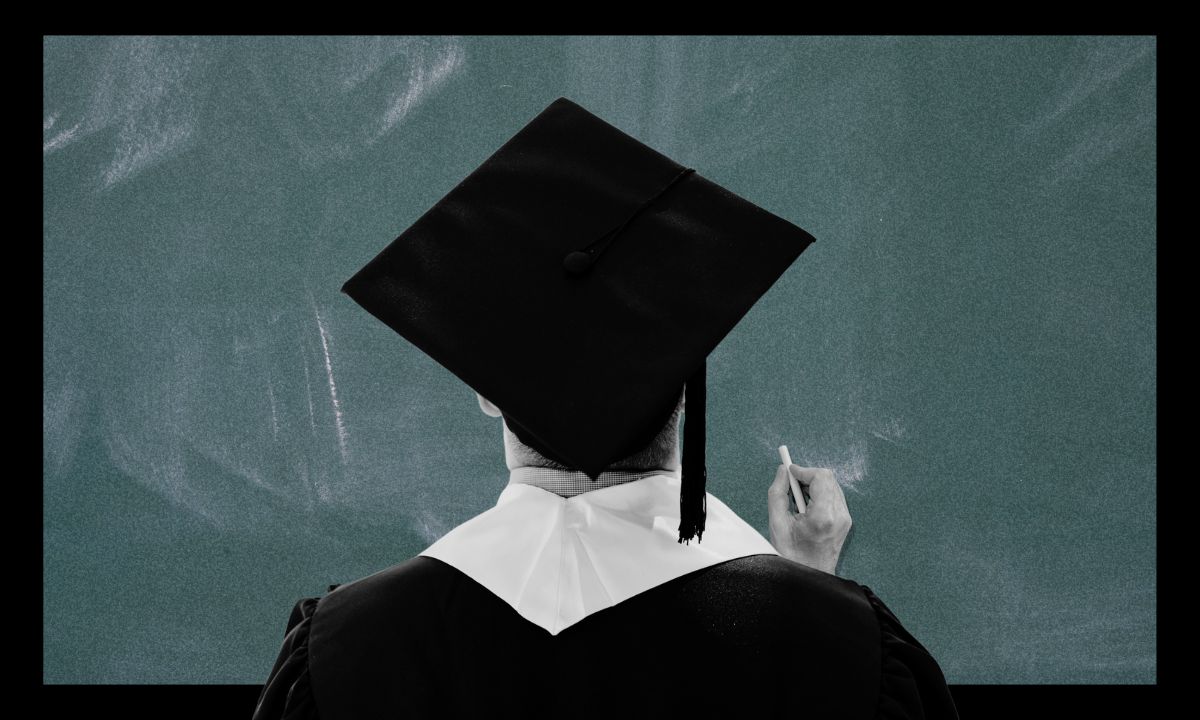Texas Law Targets Education Emergency of Uncertified Teachers in the Classroom
Hostetter: Too many teaching jobs are filled by people who aren't fully qualified. Capping the number will lead to greater professionalism & standards

Get stories like this delivered straight to your inbox. Sign up for The 74 Newsletter
Texas has a teacher problem that mirrors a national crisis: Too many classrooms are staffed by educators who haven’t been properly prepared.
About 1 in 8 teaching positions nationwide are unfilled or occupied by someone who is not fully certified. The numbers are starker in Texas, where one-third of teachers hired in the 2023-24 school year were unlicensed. This isn’t just a staffing issue; it’s an educational emergency that demands a fundamental shift in how America regards teaching as a profession.
Unlike other career paths, such as medicine, law or engineering, teaching has never been fully professionalized. It is possible for an individual to walk into a classroom with minimal training and be called a teacher.
True professionalization of teaching would require significant changes to the system, which features a hodgepodge of quick certification programs and temporary credentials across different states. Instead, every teacher should be required to complete comprehensive preparation that includes professional practice with expert feedback. This preparation period would be both rigorous and standardized — similar to medical residencies or legal clerkships — ensuring that all new teachers enter classrooms with proven skills to go along with their good intentions.
Professional teachers should also engage in continuous learning throughout their careers, which means regularly updating their skills and knowledge as new research emerges about effective educational methods. Schools should also offer clearer pathways for career advancement, making it easier for excellent teachers to take on leadership roles or mentor newcomers.
Outstanding classroom teaching requires sophisticated leadership and communication skills that take years to develop. The relative lack of ongoing training and career development for teachers once they’ve entered the classroom has created a vicious cycle where underprepared educators struggle in classrooms and leave the profession quickly. This creates more vacancies to be filled by people who also haven’t been sufficiently trained.
Texas’ House Bill 2, signed by Gov. Greg Abbott on June 4 and taking effect in the fall, attempts to break this cycle by setting specific limits on how many uncertified teachers districts can employ. Starting in the 2026-27 school year, no more than 20% of a district’s teachers would be allowed to work without proper certification in core subjects. That percentage would drop each year until it reached just 5% by 2029-30. The law is a serious step toward treating teaching like the skilled profession it is.
It was critically important that the bill be passed and signed, because the consequences of the current system are devastating for students.
In Texas, having an unprepared teacher is equivalent to missing over one-third of the school year: research shows that Texas students taught by new, uncertified teachers lose about four months of learning in reading and three months in math. Meanwhile, students taught by teachers who recently completed Relay Graduate School of Education’s rigorous preparation program gain an extra five months of progress in reading progress and three months in math. This is equivalent to gaining more than half a school year’s worth of learning in both subjects.
States facing similar shortages of qualified teachers in their classrooms should pay attention to Texas’ experiment and consider their own approaches to professionalizing teaching. The stakes are too high to continue with quick fixes and emergency measures.
Transforming teaching into a true profession would require a coordinated effort from multiple stakeholders. State governments must set and enforce rigorous certification standards while funding comprehensive preparation programs. School districts need to create supportive working environments that treat teachers as valuable professionals rather than interchangeable workers. Universities must redesign teacher preparation to emphasize practical skills and classroom experience.
And the profession itself must embrace higher standards and accountability. Students deserve teachers who have been thoroughly prepared for the complex and important work of delivering a great education.
Get stories like these delivered straight to your inbox. Sign up for The 74 Newsletter

;)